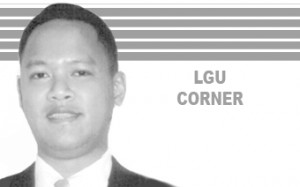 It was quite disturbing to read the headlines where the Panglao mayor and her pack of lieutenants staged a blitzkrieg-type sea attack upon Isola de Francesco, demolishing and confiscating the buoys installed around the island.
It was quite disturbing to read the headlines where the Panglao mayor and her pack of lieutenants staged a blitzkrieg-type sea attack upon Isola de Francesco, demolishing and confiscating the buoys installed around the island.
This island has since been transformed into a religious site for pilgrims and other devotees of Saint Padre Pio.
The name of the island itself evokes a religious tone–Isola de Francesco, As a Boholano, what we are proud about are the distinctive tourist attractions this province offers to the world.
But beside that, Bohol is also known to be the cradle of Christianity in this part of the country, apart perhaps from the Queen city of the south.
In Bohol we see the oldest churches, mute witnesses of the province’s rich history, particularly in the area of spreading the faith.
That is why, it was surprising to read in the newspaper that a place of worship and religious devotion became the site of political action by a local government and instrumentality of the state.
I thought days of religious purging have long been relegated into the forgotten dustbins of history.
The raid was done on the strength of a demolition order by the city engineer and implemented by no less than the chief executive herself for reasons ranging from lack of business permit to insensitivity to distressed fishermen stranded by typhoons.
We had hoped that caution and tolerance on the part of the state machinery would have prevailed in this situation.
What is of concern is not only the need to preserve a culture.
What should have been given consideration is the need for respect accorded to freedom of worship, specially in a province known to be rich in religious history.
Our Constitution guarantees that no law shall be made prohibiting the free exercise of religion.
The free exercise and enjoyment of religious worship shall forever be allowed.
Academics dub this “the free-exercise clauseâ€.
This is not what happened in Isola de Francesco.
Because of the raid, and the removal of buoys, innocent devotees, who have nothing to do with the local politics have been disturbed, if not prohibited from exercising their right to worship.
While it may be true that the city has cause to impose the permit requirement upon the business operators of the Isola de Francesco, we think that any state action must be based on standards laid down by our laws and the Constitution.
Was there a clear and present danger to the state and its people due to the non payment of business permit by a going concern, that necessitated a raid and forcible confiscation of private property?
Was there factual basis of fishermen being prevented from seeking refuge in times of distress? Or were these mere allegations?
The constitutional guarantee for the free exercise of religion occupies a higher plane in the hierarchy of values.
The values underlying this constitutional guarantee relating to religion have been zealously protected, sometimes even at the expense of other interests of admittedly high social, economic and political importance.
Only those interests of the highest order, and those not otherwise served, can overbalance legitimate claims to the free exercise of religion.
These are the pronouncements of one of the landmark decisions of the United States Supreme Court, the 1972 case of the State of Wisconsin v Yoder (406 US 205).
The sea raid on the island premises, we think, is an undue restraint on the free exercise of religion.
In the words of American Bible Society versus City of Manila, “Any restraint of such right can only be justified on the grounds that there is a clear and present danger of any substantive evil that the state has a right to prevent.”
I think in the case of the Isola de Francesco raid, there was an absence of a state interest of sufficient magnitude to override the interest claiming protection under the Free Exercise Clause, Perhaps a substantive abuse of state power took place instead.
Padre Pio may be rolling over in his grave. (By Atty. Jay Dejaresco)
